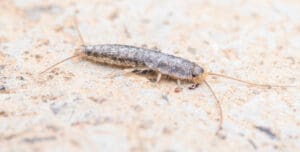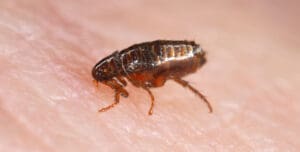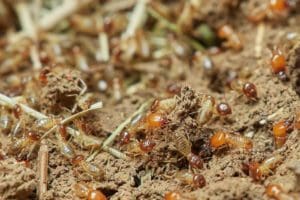
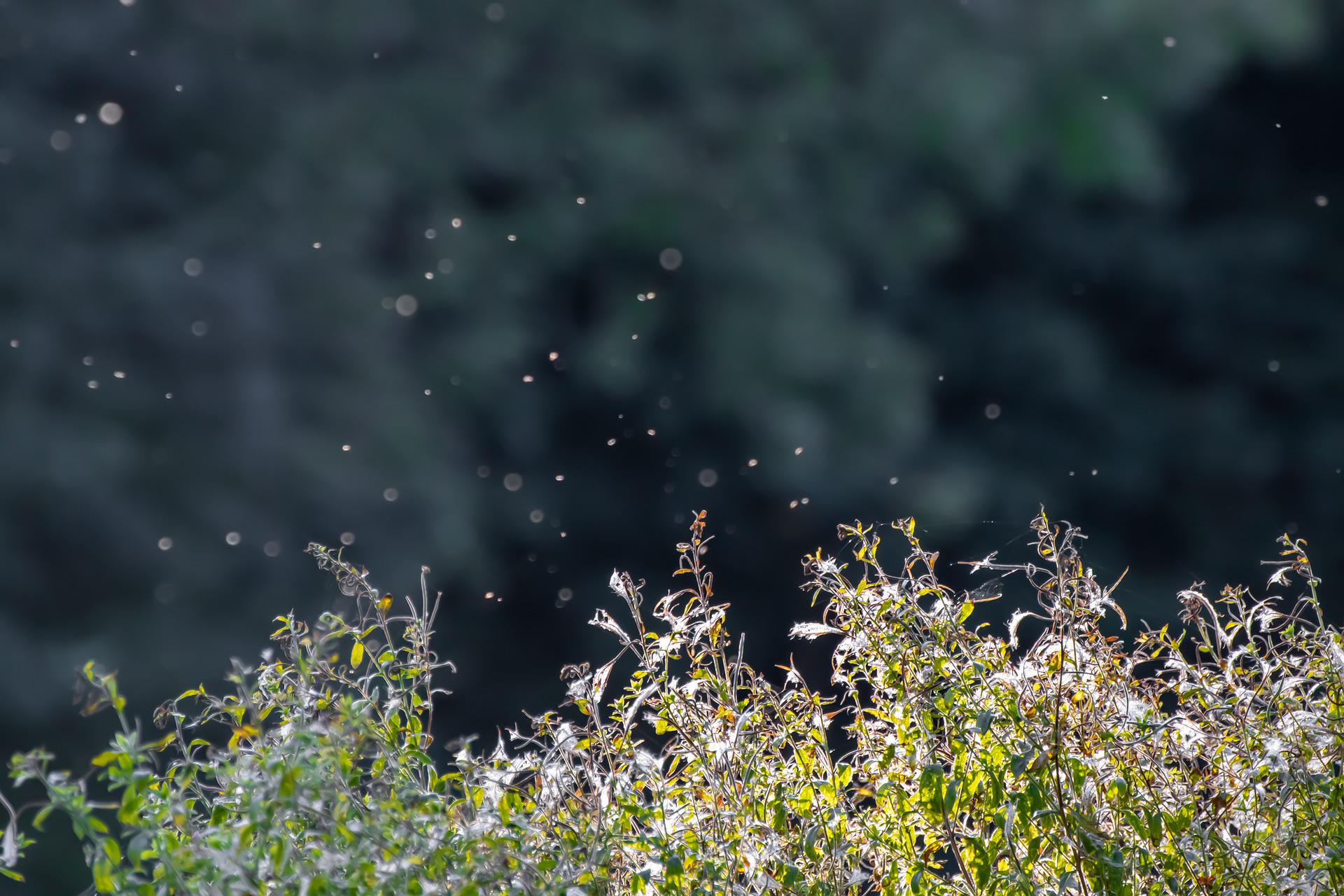
Summer is almost here, and that means spending time outdoors, having fun in the sun, and potentially dealing with bugs you don’t particularly want in your yard. After all, ants, roaches, wasps, and other little critters don’t exactly make it pleasant to be outdoors, especially when the weather’s warm and they want to find food and shelter near or in your home.
Ignoring those bugs isn’t going to make them go away. Instead, it’s more likely to lead to an infestation. Use the following pest control tips to prevent bug infestations in your yard this summer.
 Ticks serve as a food source for other animals and help to keep animal populations in check as they carry various bacteria and microorganisms. This is also what makes them problematic, as even the smallest tick can transmit Lyme disease and other diseases to people and pets.
Wasps and hornets also play an important role in ecosystems. However, they can sting when provoked. The difference between wasp and bee stingers is that wasp stingers aren’t barbed, so they don’t become attached to the person stung. This means they can sting repeatedly, causing pain, injury, and, if allergies are triggered, potentially fatal anaphylactic shock.
Mosquitoes are more than a blood-sucking nuisance. They’re also a disease vector. Mosquitoes are known to carry and spread serious human diseases such as encephalitis, malaria, west Nile virus, and zika virus.
Roaches outdoors can be a problem, especially if they contaminate food you’re eating in your yard. What’s more, they can easily become a problem indoors. As roaches crawl through decaying matter, they pick up germs on the spines of their legs. Those germs can spread to humans through food contaminated by roaches, which are known to spread at least 33 types of bacteria, such as E. coli and Salmonella, as well as different types of parasitic worms and other human pathogens. Their saliva, droppings, and shed skin contain allergens that can trigger and worsen asthma symptoms.
Ticks serve as a food source for other animals and help to keep animal populations in check as they carry various bacteria and microorganisms. This is also what makes them problematic, as even the smallest tick can transmit Lyme disease and other diseases to people and pets.
Wasps and hornets also play an important role in ecosystems. However, they can sting when provoked. The difference between wasp and bee stingers is that wasp stingers aren’t barbed, so they don’t become attached to the person stung. This means they can sting repeatedly, causing pain, injury, and, if allergies are triggered, potentially fatal anaphylactic shock.
Mosquitoes are more than a blood-sucking nuisance. They’re also a disease vector. Mosquitoes are known to carry and spread serious human diseases such as encephalitis, malaria, west Nile virus, and zika virus.
Roaches outdoors can be a problem, especially if they contaminate food you’re eating in your yard. What’s more, they can easily become a problem indoors. As roaches crawl through decaying matter, they pick up germs on the spines of their legs. Those germs can spread to humans through food contaminated by roaches, which are known to spread at least 33 types of bacteria, such as E. coli and Salmonella, as well as different types of parasitic worms and other human pathogens. Their saliva, droppings, and shed skin contain allergens that can trigger and worsen asthma symptoms.
 Walk through your yard and check if water is gathering anywhere. Check all the faucets outside your house and in the yard and fix any that are leaking. If you find other damp spots or long-term puddles, take steps to rectify those issues.
Walk through your yard and check if water is gathering anywhere. Check all the faucets outside your house and in the yard and fix any that are leaking. If you find other damp spots or long-term puddles, take steps to rectify those issues.
 Plant basil, lavender, citronella, rosemary, and marigolds to repel mosquitoes, and plant chrysanthemum to repel roaches, ticks, and other pests. Petunias also repel a wide range of insects that could infest your yard.
Plant basil, lavender, citronella, rosemary, and marigolds to repel mosquitoes, and plant chrysanthemum to repel roaches, ticks, and other pests. Petunias also repel a wide range of insects that could infest your yard.
Common Yard Pests
Some of the most common bugs that might infest your yard in summer include ants, ticks, hornets and wasps, mosquitoes, and roaches. While some of those bugs play a good and important role outdoors, an infestation could lead to problems for you, your loved ones, and your home. Ants are one of the bugs that play an important role outdoors. However, they can be a problem if they start farming sap-sucking insects on your plants, invade your BBQs and garden picnics, or enter your home in search of food and/or a nesting site.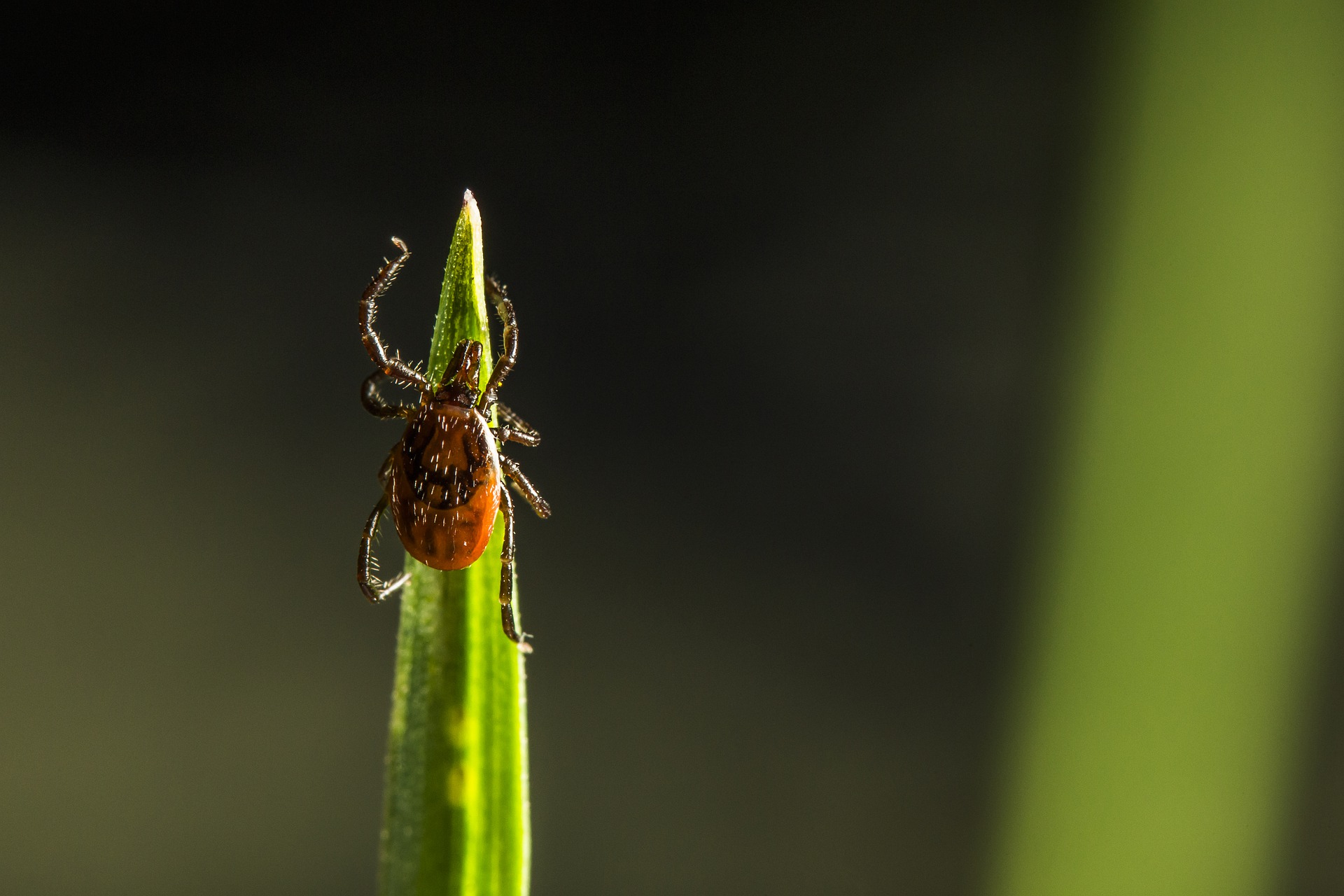 Ticks serve as a food source for other animals and help to keep animal populations in check as they carry various bacteria and microorganisms. This is also what makes them problematic, as even the smallest tick can transmit Lyme disease and other diseases to people and pets.
Wasps and hornets also play an important role in ecosystems. However, they can sting when provoked. The difference between wasp and bee stingers is that wasp stingers aren’t barbed, so they don’t become attached to the person stung. This means they can sting repeatedly, causing pain, injury, and, if allergies are triggered, potentially fatal anaphylactic shock.
Mosquitoes are more than a blood-sucking nuisance. They’re also a disease vector. Mosquitoes are known to carry and spread serious human diseases such as encephalitis, malaria, west Nile virus, and zika virus.
Roaches outdoors can be a problem, especially if they contaminate food you’re eating in your yard. What’s more, they can easily become a problem indoors. As roaches crawl through decaying matter, they pick up germs on the spines of their legs. Those germs can spread to humans through food contaminated by roaches, which are known to spread at least 33 types of bacteria, such as E. coli and Salmonella, as well as different types of parasitic worms and other human pathogens. Their saliva, droppings, and shed skin contain allergens that can trigger and worsen asthma symptoms.
Ticks serve as a food source for other animals and help to keep animal populations in check as they carry various bacteria and microorganisms. This is also what makes them problematic, as even the smallest tick can transmit Lyme disease and other diseases to people and pets.
Wasps and hornets also play an important role in ecosystems. However, they can sting when provoked. The difference between wasp and bee stingers is that wasp stingers aren’t barbed, so they don’t become attached to the person stung. This means they can sting repeatedly, causing pain, injury, and, if allergies are triggered, potentially fatal anaphylactic shock.
Mosquitoes are more than a blood-sucking nuisance. They’re also a disease vector. Mosquitoes are known to carry and spread serious human diseases such as encephalitis, malaria, west Nile virus, and zika virus.
Roaches outdoors can be a problem, especially if they contaminate food you’re eating in your yard. What’s more, they can easily become a problem indoors. As roaches crawl through decaying matter, they pick up germs on the spines of their legs. Those germs can spread to humans through food contaminated by roaches, which are known to spread at least 33 types of bacteria, such as E. coli and Salmonella, as well as different types of parasitic worms and other human pathogens. Their saliva, droppings, and shed skin contain allergens that can trigger and worsen asthma symptoms.
How To Prevent Bug Infestations
Use the following tips to prevent bugs from infesting your yard this summer.-
- Keep Your Yard Neat And Tidy
-
- Get Rid Of Your Lawn’s Wet Spots
 Walk through your yard and check if water is gathering anywhere. Check all the faucets outside your house and in the yard and fix any that are leaking. If you find other damp spots or long-term puddles, take steps to rectify those issues.
Walk through your yard and check if water is gathering anywhere. Check all the faucets outside your house and in the yard and fix any that are leaking. If you find other damp spots or long-term puddles, take steps to rectify those issues.
-
- Use Natural Pest Control
 Plant basil, lavender, citronella, rosemary, and marigolds to repel mosquitoes, and plant chrysanthemum to repel roaches, ticks, and other pests. Petunias also repel a wide range of insects that could infest your yard.
Plant basil, lavender, citronella, rosemary, and marigolds to repel mosquitoes, and plant chrysanthemum to repel roaches, ticks, and other pests. Petunias also repel a wide range of insects that could infest your yard.
-
- Bring In Pest Control Professionals




